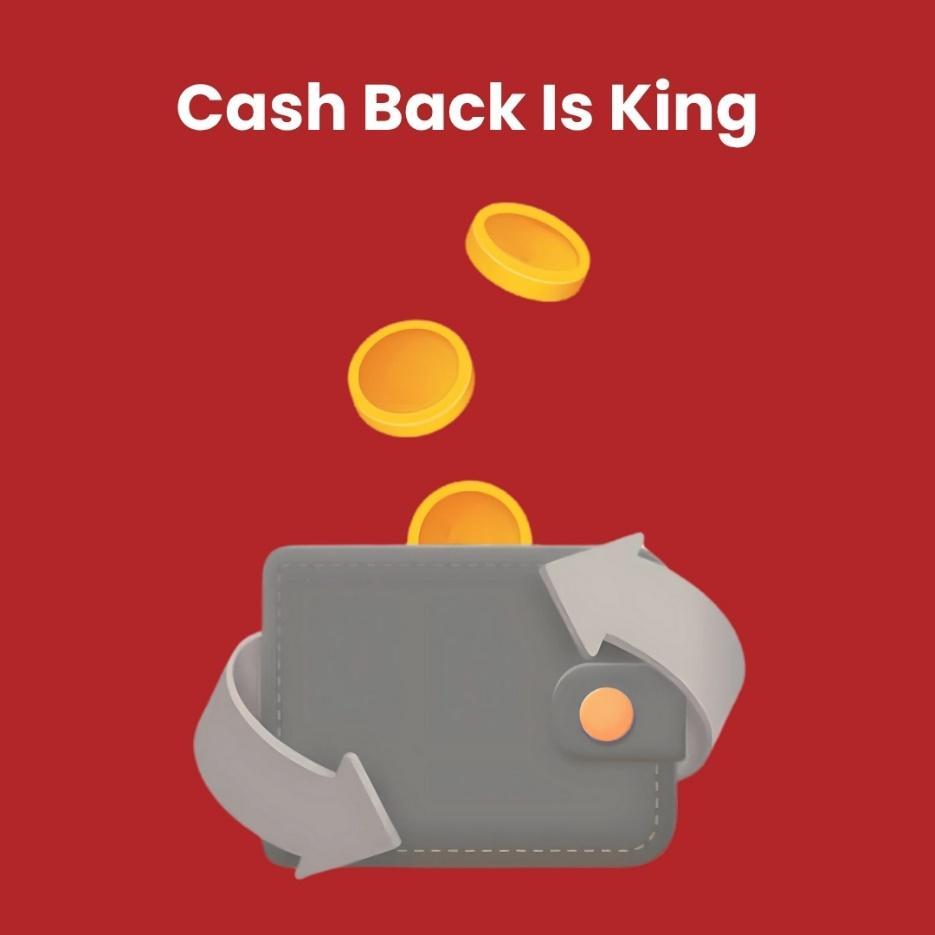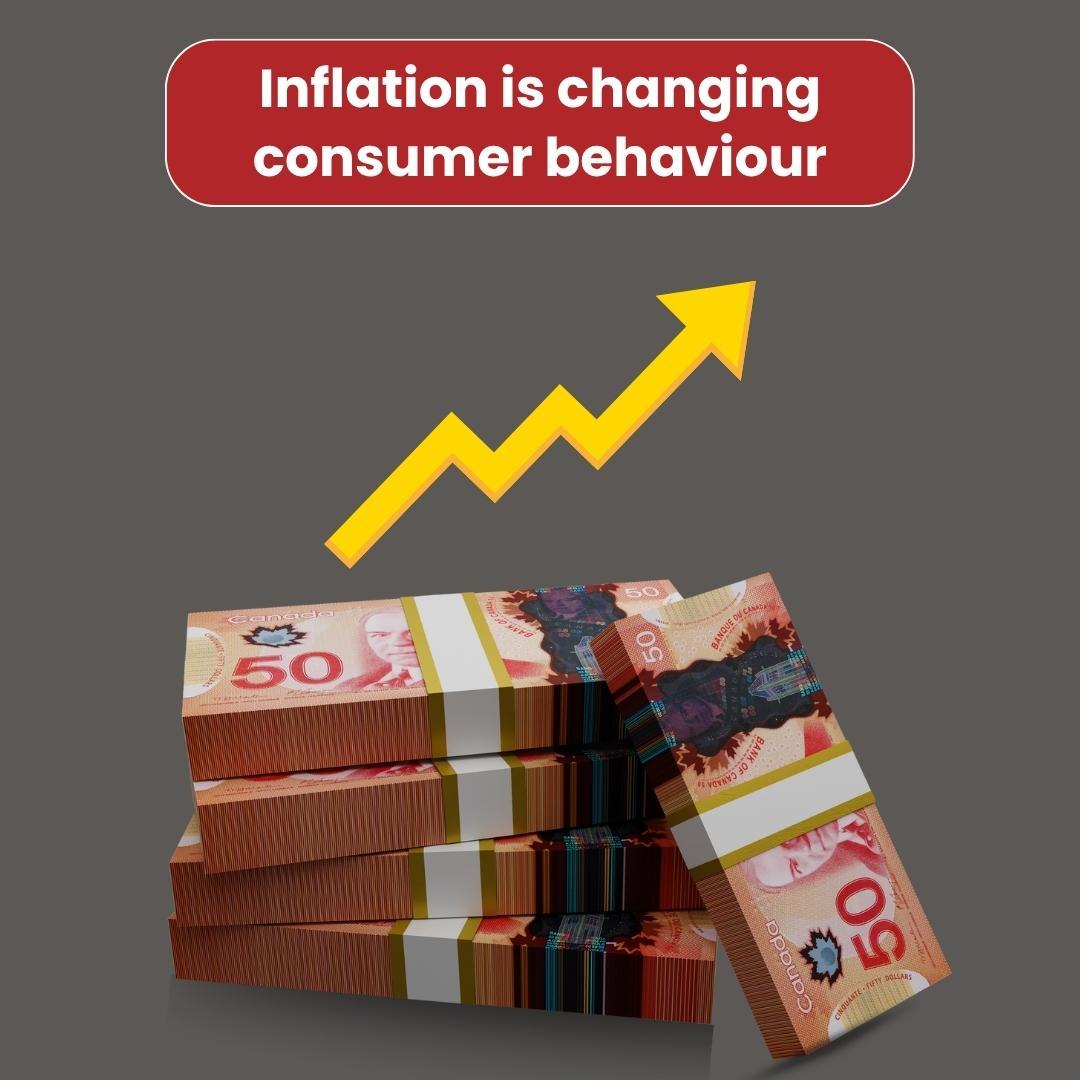The landscape of credit card spending in Canada is shifting rapidly in 2025. With the ongoing pressure of inflation, the rising costs of groceries, gas, and travel have prompted many Canadians to reassess how they use their credit cards. No longer just tools for convenience, credit cards have become essential financial instruments for rewards, deferred payments, and smart debt management. From tapping into loyalty programs to navigating new interest rate challenges, Canadians are using plastic in more strategic ways than ever before.
In this blog, we’ll explore how inflation is influencing consumer behaviour, the evolving features of popular credit cards, and the broader impact on household budgeting and debt. Whether you’re maximizing Tangerine cash back, chasing a rebate, or looking for ways to stretch your dollar at retailers like AliExpress, understanding these new patterns can help you stay ahead of the financial curve.
The Inflation Squeeze: A New Era of Credit Card Dependency
Grocery prices have climbed steadily in 2025, with average household food bills seeing an increase of over 8% year-over-year. Gasoline prices, particularly in urban centres, have also risen, driven by global instability and higher transportation costs. Travel, often viewed as a discretionary expense, has become pricier too — yet Canadians are still booking trips, relying more on point-based systems and loyalty programs like Marriott Bonvoy credit cards.
Faced with this new economic reality, Canadians are leaning more heavily on credit cards that provide immediate value through rewards, rebates, and flexible repayment options. Inflation isn’t just shaping how much we spend — it’s reshaping how we spend.
Strategic Spending: Using Credit Cards as Budget Tools
Canadians are moving away from treating credit cards as merely a payment method. Instead, they are actively using them to manage budgets and optimize value. For example, cards like the Tangerine Cash Back Credit Card allow users to choose specific categories (such as groceries or gas) for enhanced cash back returns. This targeted approach helps offset rising living costs in areas where spending is non-negotiable.
Similarly, platforms like Expedia and Priceline are seeing increased usage through co-branded cards that reward travel purchases. By aligning card perks with essential or planned expenses, Canadians are turning everyday purchases into opportunities to stretch their CAD.
Interest Rates and the Rise of “Pay Later” Features
With the Bank of Canada holding interest rates at elevated levels to combat inflation, many consumers are more cautious about carrying balances. Interest rates on unpaid credit card balances have remained steep, making traditional borrowing less attractive. In response, Canadians are turning to cards with instalment or deferred payment options.
Some cards now offer “Buy Now, Pay Later” plans — a key evolution in credit card spending in Canada. These allow users to split large purchases into predictable, lower-interest payments. While not ideal for all situations, these features offer short-term relief in a high-cost environment, especially for purchases at retailers using a Team Town Sports discount code or Reitmans promo code.
Rewards Matter More Than Ever
With inflation reducing purchasing power, Canadians are keen to earn something back with every swipe. Reward programs, especially those tied to travel and cash back, are seeing renewed interest. Cards like the Amex Cobalt Credit Card continue to attract attention for their rich point’s structure on dining, groceries, and streaming services.
Moreover, consumers are comparing options more critically, looking not only at earning potential but also redemption value. Tools like Wealthsimple Cash Card or even high-tier cards like the Platinum Card Amex and Amex Business Platinum Card offer enhanced perks, but only if the benefits justify the annual fees. The key shift? Canadians are willing to pay for rewards — if the math adds up.

Cash Back Is King
In 2025, cash back remains one of the most popular features among Canadian credit card holders. Cards like the Tangerine World Mastercard, and Amex cash back variants are becoming go-to choices for individuals prioritizing simplicity and liquidity.
Instead of complex point structures, many are choosing direct cash back rewards to reinvest in everyday expenses. This trend is especially evident in suburban and rural households, where inflation on essential goods has hit the hardest. A well-chosen cash back card provides relief without complicating the redemption process, making it a staple in modern wallets.
Brand Loyalty Is Influenced by Deals and Rebates
As costs continue to rise, Canadians are more likely to choose brands and platforms that offer strong value propositions. The ability to stack credit card rewards with limited-time offers such as different coupon codes plays a significant role in consumer loyalty.
Canadians are also increasingly aware of rebate platforms and strategic partnerships between credit card issuers and major retailers. For instance, combining an Amex Cobalt rebate with a retailer promo can deliver substantial value. This hybrid spending model — using rewards, rebates, and discounts together — reflects a broader shift toward financial optimization.
The Role of Fintech and Digital Tracking
Tech-savvy Canadians are leveraging mobile apps and online tools to track their credit card spending with greater precision. From monitoring balances to analysing spending by category, these tools are empowering users to make informed financial decisions.
This rise in digital financial literacy means consumers are more selective when choosing cards. They’re evaluating everything from annual fees to bonus structures. Interest in tools which integrates smoothly with various card platforms, also highlights the demand for seamless money management.
Credit Cards and the Debt Dilemma
Despite best efforts, many Canadians are accumulating higher levels of credit card debt. While some of this is strategic — used to access rewards or manage short-term cash flow — it also carries risk. Credit card interest remains one of the most expensive forms of debt.
In response, we’re seeing a rise in balance transfer activity, especially towards cards with promotional low-interest periods. Programs offered by MBNA rewards or the Rogers World Elite Mastercard often include balance transfer incentives, giving consumers a financial breather. Still, the long-term strategy must include disciplined repayments and an understanding of promotional expiry terms.
Younger Canadians Are Driving New Credit Card Trends
Millennials and Gen Z Canadians are emerging as influential voices in shaping the future of credit card spending in Canada. Faced with high rent, rising education costs, and limited homeownership opportunities, younger adults are approaching credit cards not just as spending tools but as lifestyle enablers. They tend to prefer cards with flexible perks, digital-first interfaces, and strong loyalty tie-ins — such as those found in the American Express Cobalt or Tangerine Cash Back Credit Card. Many in this demographic are also quick to use promo and rebate opportunities, such as a Shein coupon code, pairing them with cash back rewards to boost their purchasing power. Their tech fluency and value-oriented mindset are setting new expectations for the credit industry, pushing card issuers to innovate in real time.
The New Credit Card Economy in Canada
Inflation in 2025 has significantly transformed the way Canadians approach their personal finances, particularly when it comes to credit card usage. With the cost of living climbing steadily—especially in areas like food, fuel, and travel—credit cards have evolved from simple payment tools into strategic instruments for managing day-to-day expenses and long-term goals. Many Canadians are now taking a more thoughtful and value-driven approach, whether it’s earning rewards on essential purchases, deferring payments to ease monthly cash flow, or combining limited-time offers with ongoing loyalty programs to maximize savings. The focus has shifted from impulsive spending to informed decision-making, as individuals seek to make their purchases work harder for them. In this new financial landscape, it’s no longer just about how much money is being spent—it’s about how effectively every dollar is being used to counterbalance inflation and support a more sustainable lifestyle.
Travel Perks Regain Popularity amid Rising Vacation Costs
Despite inflation making vacations more expensive, Canadians haven’t given up on travel — they’re just getting smarter about it. Many are using credit cards with strong travel-related benefits to soften the blow of airfare, hotel, and rental expenses. Cards linked to platforms like Expedia, or those offering exclusive perk, are seeing renewed interest. Users are also stacking these benefits with seasonal offers, such as a Priceline discount or a Dell coupon code for tech purchases before a trip. Whether its airport lounge access, travel insurance, or extra points on foreign purchases, these perks are helping Canadians experience more while spending less.
Make the Most of Your Credit Card Strategy with Great Canadian Rebates
Looking to get more from your credit card use this year? With inflation squeezing budgets across the country, it’s more important than ever to be intentional with your credit card choices. That’s where Great Canadian Rebates comes in.
We provide a simple, free-to-use online platform that lets you explore and compare a wide range of credit card options available in Canada — all in one place. Whether you’re looking to apply for a Tangerine Cash Back Card, earn rewards, or access rebates for high-value options like the American Express Cobalt, we’ve got you covered.
What sets us apart is the ability to earn generous cash back rebates upon approval of credit cards applied for through our website. It’s a smarter way to offset rising costs while enjoying the perks of cards that align with your lifestyle. Plus, Members can shop at over 700 top retailers and stack their savings with promo codes or coupons.


